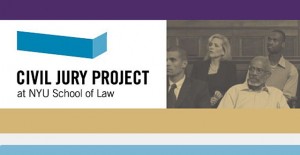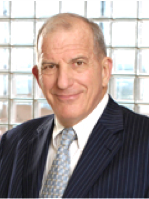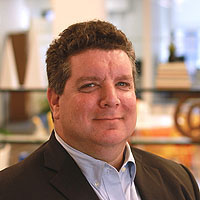Source of article DOAR Litigation Consulting.


Stephen Susman
In a series of articles on Law 360, Steve Susman, Richard Lorren Jolly and DOAR Jury Consultant Roy Futterman provide the Civil Jury Project’s proposed innovations for improved jury trials:
This is the seventh in a series of articles on the Civil Jury Project’s proposed innovations that can resuscitate the American jury trial. Each week we offer a summary of a different innovation, the legal support for its use, and empirical studies on its popularity. Each innovation has been proposed by academics and practitioners, implemented by state and federal judges, and is not prohibited in most jurisdictions. Most importantly, these innovations address the main criticisms leveled at juries — that they are too long, too expensive, too unpredictable — and are designed to make trial by civil jury a more desirable form of dispute resolution.
Innovation Seven: Interim Arguments by Counsel

Richard Lorren Jolly
Like our previous recommendation to allow jurors to submit questions following testimony, this next innovation aims to achieve a better and faster jury trial by ensuring that jurors comprehend the relevance of the evidence presented. Interim arguments are summations of the evidence made by counsel before or following testimony. Counsel can use these arguments to explain the importance and relevance of the expected or elicited testimony. It can also serve to break up the monotony of back-to-back witness testimony, keeping jurors engaged.
There is a significant amount of support for interim arguments. Standard 13(G) of the American Bar Association’s American Jury Project Principles and Standards, provides that “

Roy Futterman, Ph.D.
But interim arguments are not practiced regularly. According to a 2015 study conducted by the National Center for State Courts, only 1 percent of civil trials included interim summaries of evidence. And a national survey of attorneys conducted by the Civil Jury Project and American Society Trial Consultant Association found that only 9 percent have experience with this innovation. Despite this scarcity, some empirical data has shown that interim arguments are beneficial. A study conducted by the American Bar Association found that over 80 percent of the jurors reported that interim arguments were helpful to aid juror comprehension of the case.
As we have previously noted, jurors take in information at trial in a highly confusing manner through watching adversarial questioning of witnesses. Jurors hear chunks of information out of narrative order and must struggle to fit these pieces together. By allowing attorneys to summarize what has just occurred in the testimony and how it fits into the wider case narrative, the court would be substantially improving juror comprehension throughout every step of a trial. This would likely serve to speed up deliberations as well, as there may be less need to have testimony re-read.
In addition, allowing counsel to make statements or arguments to the jury during the course of a trial would allow the court to rein in counsel, who often use their questions of witnesses to make arguments to the jury. The only possible objection is that it might increase the time of the trial. But, in fact, if the lawyers could explain to the jury why they are calling a witness or what the witness has just demonstrated, the lawyers may also feel less need to repeat things — which remains the most common objection that jurors have to the way lawyers try cases. Thus, interim arguments can make trials both quicker and more accurate.
Next week, we will present another innovation to make trial by civil jury better: back-to-back expert testimony.
Stephen D. Susman is a founder of Susman Godfrey LLP and the executive director for The Civil Jury Project at NYU School of Law.
Richard Loren Jolly is an attorney and research fellow at the Civil Jury Project.
Roy Futterman, Ph.D. is an adviser to the Civil Jury Project. He is a jury consultant, clinical psychologist and director at DOAR, Inc., as well as a columnist for Law360.
The post Innovating For Wise Juries: Interim Arguments appeared first on DOAR.
